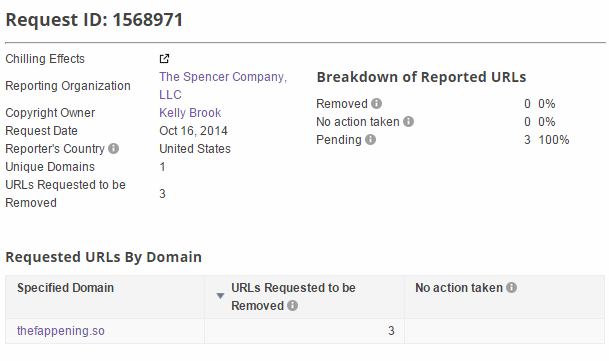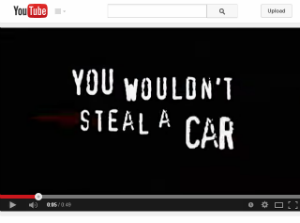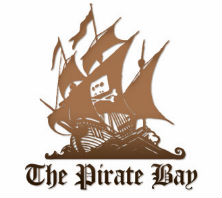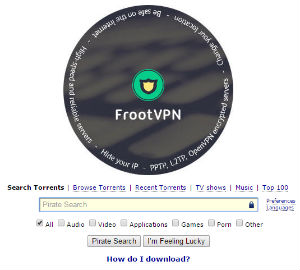Kelly Brook Wants Fappening Nudes Removed From Google
dimanche 26 octobre 2014 à 09:47 Since late August hundreds of photos of naked celebrities have leaked online in what’s now known as “The Fappening.”
Since late August hundreds of photos of naked celebrities have leaked online in what’s now known as “The Fappening.”
The leaks resulted in a massive takedown operation targeted at sites that host and link to the controversial images.
As a hosting provider and search engine Google inadvertently plays a role in distributing the compromising shots, much to the displeasure of the women involved.
Several celebrities threatened legal action against Google for its “unlawful activity,” demanding tgat the company should zap all their images. Others, including Jennifer Lawrence and Kate Upton, used DMCA requests to remove the images from the public eye.
The famous UK actress, model and TV presenter Kelly Brook now joins this group as one of the latest Fappening victims.
Brook’s pictures leaked onto the Internet early October and last week she asked Google to remove three links to her pictures from search results, claiming that she holds the copyrights to the selfies.
The images are allegedly hosted on thefappening.so, and according to Google’s transparency report the request is still “pending”. However, during this week something unusual happened.

For reasons unknown, Google has decided to remove all URLs of thefappening.so from its search results. Whether the pages were removed because of the leaked pictures, or for another reason, is unknown.
Kelly Brook is not the only celebrity to ask Google to remove thefappening.so links, Argentinian singer Melina Lezcano did the same last week.
TorrentFreak asked Google whether the removal of the entire domain name is due to its content or if there’s another reason, but we have yet to receive a response.
Whatever the reason, Brook and Lezcano’s takedown requests are moot. Whether they will be relieved is doubtful though, as most of the Fappening photos are still being shared through thousands of other sites.
Source: TorrentFreak, for the latest info on copyright, file-sharing and anonymous VPN services.
 There are many explanations for the existence of online piracy, from content not being made available quickly enough to it being sold at ripoff prices. Unfortunately for Australians, over the years most of these complaints have had some basis in fact.
There are many explanations for the existence of online piracy, from content not being made available quickly enough to it being sold at ripoff prices. Unfortunately for Australians, over the years most of these complaints have had some basis in fact.
 In common with many countries around Europe, the movie and music industries in Iceland have been working hard to cut down on copyright infringement online. To this end copyright groups including the local equivalents of the RIAA (STEF) and MPAA (SMAIS) have targeted the leader of the usual suspects, the notorious Pirate Bay.
In common with many countries around Europe, the movie and music industries in Iceland have been working hard to cut down on copyright infringement online. To this end copyright groups including the local equivalents of the RIAA (STEF) and MPAA (SMAIS) have targeted the leader of the usual suspects, the notorious Pirate Bay.